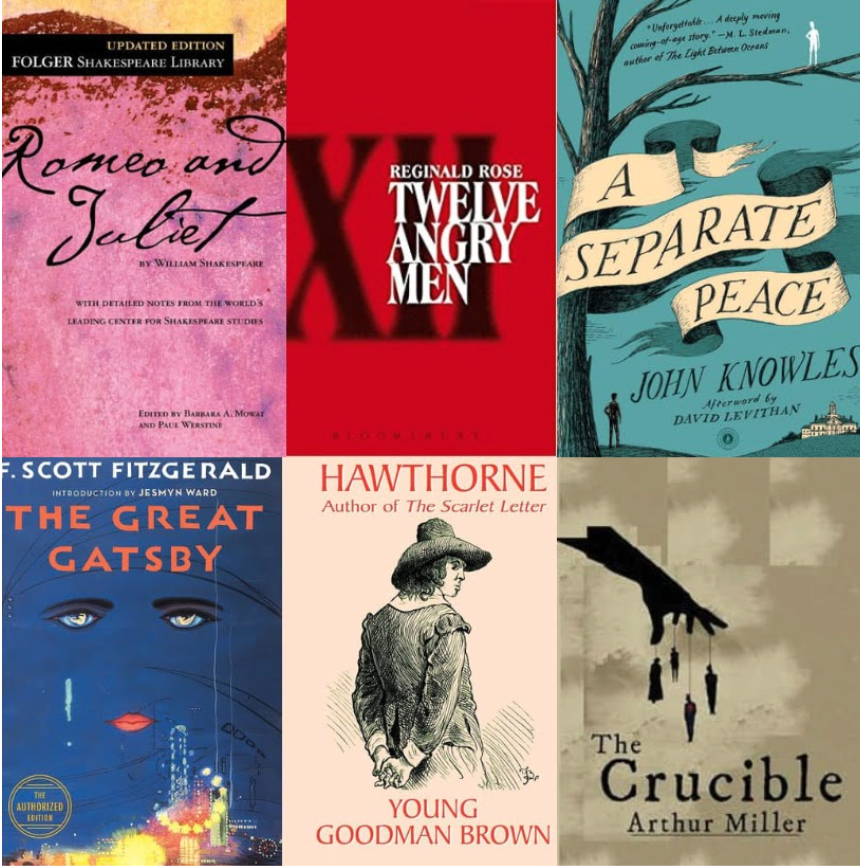It’s Time To Retire the Classics We Read in English
The world is forever growing and adapting, and it’s time that our English classes’ book selection meet those changes.
These books are read in English classes at Eastern, and the latest one written was 1964! Also, every main character in all six books are white males, reiterating the point that diversity is needed in English class.
Many books read in English classes date far back. Oliver Twist was published in 1838, Shakespeare’s works were written between 1590 to 1613, and Homer’s The Odyssey was estimated to be written in about 725–675 bce.
Although some of these novels can connect to the world, most of their subject matter is not relevant in the world we live in now. One aspect included in books published over the past 30 years that isn’t typically found in older books is diversity in the stories.
Having POC main characters, along with characters that are a part of the LGBTQIA+ community, are more commonly found in books today. The need for diversity in literature is very crucial; students should be reading about all types of people to educate themselves on different experiences, while others may feel represented by characters who are like them.
Now, not all older books are necessarily bad or pointless to read in class, but the majority are just about one demographic: white men.
However in English II at Eastern, students read All Quiet On The Western Front, where while it is about primarily white men, the lessons and themes of the horrors of war and comradeship are essential for students to learn and understand.
In contrast, during English I, students read Of Mice and Men, and there were many racist lines and moments, mainly with the one black character in the novel, Crooks. Although the book does show themes and great moments of friendship, loneliness, and loyalty, there are countless other new books that show those same themes without racist ideas mixed in.
A good example of this that could teach valuable lessons to students is Aristotle and Dante Discover the Secrets of the Universe by Benjamin Alire Sáenz. In this novel, the main character Ari is a lonely teenager growing up in El Paso, Texas, in the 80s. He meets a boy named Dante, and together a beautiful friendship blossoms. Readers can learn a ton about love, acceptance, and dealing with problems that are out of your control while still keeping the curriculum modern. Best of all, this book is very popular on social media, so if kids were to see that the novel is very acclaimed, they may be more open and enthusiastic towards reading it.
When sophomore Alanna Stein was asked how the English curriculum affected her feelings and enthusiasm towards the class, she said “the books we read in English class make it boring and monotonous because we read things people have read forever. I don’t care about Odysseus, although I do understand that mythology is an important way to make connections to the world. I’d much rather read books with themes that are relatable.”
Stein goes on to give an example of a book she recently enjoyed, The Seven Husbands of Evelyn Hugo.
“I’m not a big reader, but over the summer I read The Seven Husbands and I read it so fast because it was something that interested me. The themes portray common issues that our world is dealing with today like superficial friends and strained relationships. The main character is a woman who is a person of color, along with being queer in a time where that wasn’t acceptable. Seeing how she overcomes her challenges was inspiring to me, and would be to many other students,” she said.
Stein wraps everything up by saying “Although classics are considered fundamental pieces of literature to read, I believe that if we read more relatable and current books I would enjoy English class and benefit from it more.”
The world is forever growing and adapting, and it’s time that our English classes’ book selection meet those changes.








Barbara Lipson • Oct 25, 2021 at 3:28 PM
fabulous article and so appropriate for today.